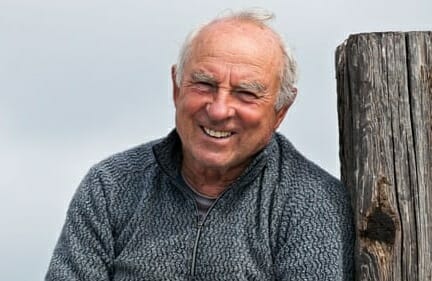The retail apocalypse has arrived, or so the media are constantly reminding us, and don’t they love a bad news story. The good news stories are relegated to the back page or don’t make it to publication at all. This blog post is about the good news in the retail world and, more importantly, what the future of that world looks like.
The bad news first
The bad news in retail is well known. The Guardian reported recently that “Philip Green tries to stop Topshop group falling like a house of cards”. This is serious as the Arcadia Group, which owns Topshop, employs 19,000 people. Even the CVA process (company voluntary agreement that usually involves rent reductions and store closures) is being objected to by landlords who are looking for Green to put some of his own cash into the business. The same Green family has extracted millions from the company including a £1.2bn dividend in 2005. So I suppose it is payback time for a reluctant Green. But the issue is not about cost cutting.
According to Richard Hyman, an independent retail consultant, “The Arcadia brands peaked in retail terms before [Green] bought them. Topshop until recently was doing really well but in the last couple of years it has become a shadow of what it was. Those businesses don’t have a proposition that cut it with the consumer enough. I think [Green] is in a real corner. He’s left it far too late.”
This last comment could be written about many of the retail brands that feature as part of the bad news stories of the retail apocalypse.
The good news
What is the good news? The Local Data Company have recently released their comprehensive and very interesting Retail and Leisure Market Analysis for 2018 for the UK. Their conclusion is that the market is undoubtedly turbulent, in a state of flux and that it is effectively being ‘reset’. This period of change is likely to continue and those who are left will be the retailers who have moved with the zeitgeist and excel at offering customers exactly what they want. Whilst all the data is from the UK, the basic trends can be applied to Ireland, and the B word is not mentioned!
The alternative retail model
Yvon Chouinard, (pictured above) the 80 year old founder of Patagonia, sounds very left field. He believes stock market valuations are “absurd”, investing in shares is “buying blue sky” and modern-day capitalism is destroying the planet. Yet he owns a $1bn turnover company that started up in 1973, uses 100% organic cotton and donates 10% of the profit to environmental charities. Chouinard also has the right idea on where the consumer sits in the change process.
“You’ve got to change the consumers first and then the corporations will follow and then government will follow the corporations. They [governments] are last in line.” In some ways this is unsurprising as many corporations have revenues that exceed entire country’s GDPs.
He was definitely ahead of his time, yet he has proved that by being a responsible retailer you can also be successful and grow. I have written previously about Ingvar Kamprad, founder of IKEA. In the introduction to his 1976 book “The Testament of a Furniture Dealer,” he wrote, “We have decided once and for all to side with the many people. What is good for our customer is also, in the long run, good for us. This is an objective that carries obligations.”
What both of these retail success stories have in common is that they don’t neglect their consumers or their workers to placate the shareholders or to enrich themselves. Both Patagonia and IKEA regularly rate well on the Great Place to Work survey and often have more progressive work conditions than other comparable companies.
My list of attributes for a responsible retailer of the future.
- Totally in the shoes of the customer
- Omnichannel
- Proactive approach to the changing market
- Reactive financial reporting structure
- Operates to the triple bottom line
- Environmentally responsible
- Socially responsible
- Rooted in the community
Seeds of hope in Ireland
There is also some good news here in Ireland. The Great Outdoors are moving, after 32 years in Chatham Street, to new premises on South Great Georges Street in Dublin and are investing €700,000 in the relocation. It’s no coincidence that they are in the same business as Patagonia. Other news is that Marks and Spencer announced last year that they are opening a supermarket in Limerick city centre. But these stories don’t get the same attention as store closures, see my opening comment.
Last Sunday the Business Post featured a great article on “The Staying Power of Charity Shops”. “No matter how many recessions batter the high street, charity shops continue to survive and thrive”, wrote Sarah Taaffe Maguire.
This is a sector very close to my heart through my role as Coordinator of the Irish Charity Shops Association for the past eleven years. This article showed that the triple bottom line is alive and very well in the charity retail sector.
Who will survive the turbulence?
Who are likely to be the survivors of the storms and stress of the current retail climate? For my money it’s the smaller, usually independent retailers. They are nimble and adaptable, really in touch with their customers and are willing to invest in technology to keep them coming into their stores. It’s evident that the old model is broken so the choice is to find an alternative or die.
Happy Retailing!
© Retail Renewal 15/05/19
Retail Renewal offers practical solutions for the ever-evolving challenges of running a retail business today. Find out more on www.retailrenewal.ie If you’d like to get in touch with Retail Renewal about your retail or business project please give Linda a call on 086 8146949. Let us help you to grow your business and your profits.
https://www.localdatacompany.com
https://www.greatplacetowork.com/certified-company/1000372
http://retailrenewal.ie/2018/02/01/brand-wonderful-everyday/
http://retailrenewal.ie/2018/11/22/top-tip-7-what-is-omnichannel/
http://retailrenewal.ie/2019/03/08/community-involvement-for-retailers/
http://retailrenewal.ie/2018/08/16/nimble-is-the-name-of-the-game/

